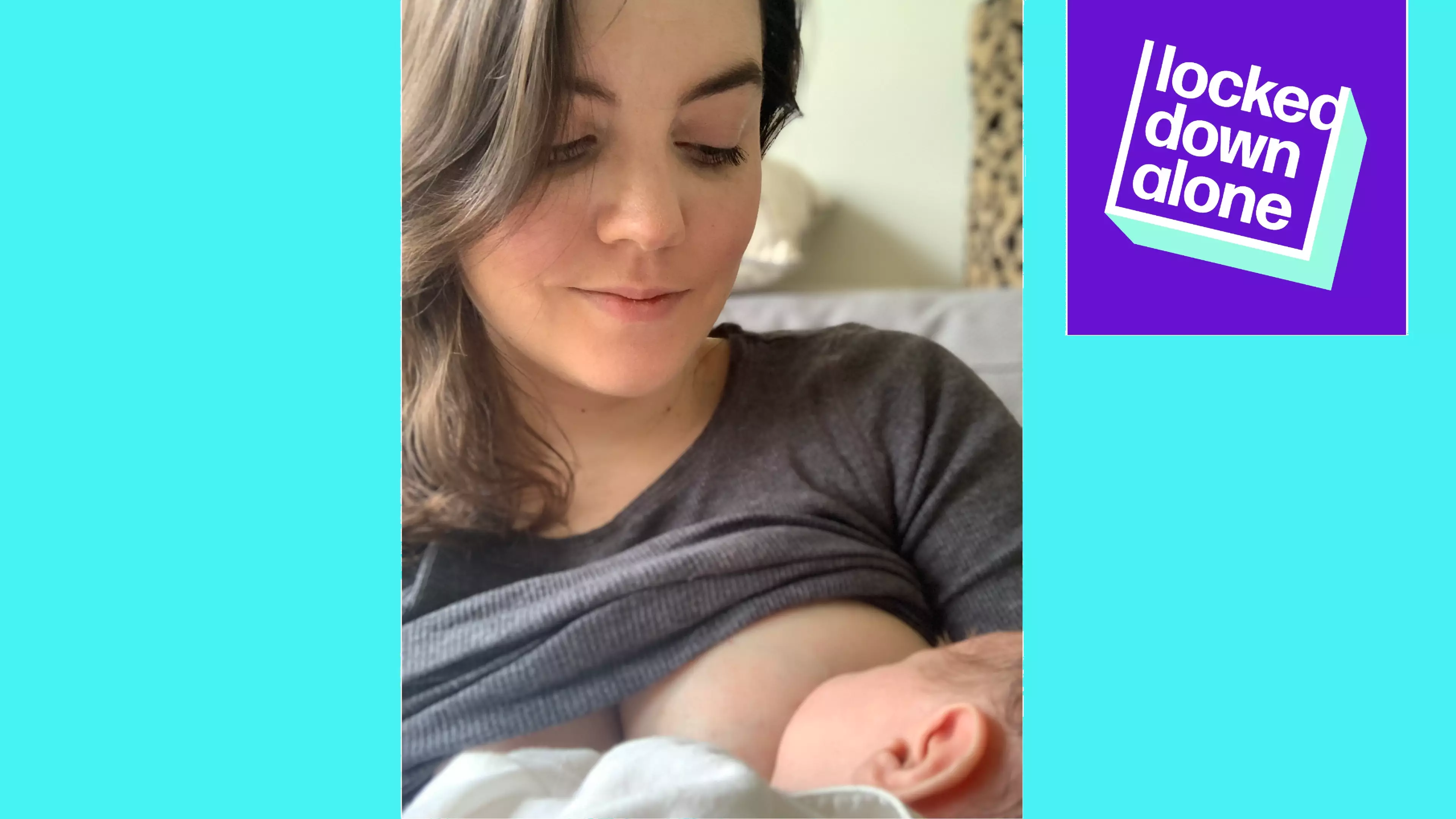
Words by Amelia Jean Jones, 32, from Hertfordshire
Unprecedented anxiety and low-level fear isn't uncommon during a global pandemic. Throw becoming a parent of a special-care baby into the mix and it can make the happiest days of your life seem even more uncertain.
On the drive to the hospital, like most expectant mums, I was nervously excited to meet the little person who had been growing inside me for nine months.
Advert
Of course, there were the usual worries; I was anxious about the pain, the fact that my husband and I couldn't agree on names and, of course, the years of sleep deprivation that were to follow.
What I hadn't factored in was that the ongoing murmurs around Covid-19 in the wider world were about to descend on our lives - and the delivery room - in a very big way.
Around 36 hours into a seemingly straightforward labour with my mum and husband by my side, things took a terrifying turn; I was told the baby was in distress and I needed a category-one emergency c-section. Translation: there was an immediate threat to the life of me and my baby.
Advert
Thankfully, within 30 minutes of signing the consent form and following vomit, complications and blood loss on my part, Olga arrived safely at 5.30pm Wednesday 11 March.
To say I was exhausted and emotionally drained would be an understatement. But as I recovered the following morning, trying my hardest to breastfeed and smile for family photos on the ward, I was elated that our new arrival was finally here.
It was around midday that I noticed Olga's right leg and arm twitching. It was a rhythmic motion that just didn't seem like baby wriggles. I called the midwife into the room and was told that it was just because she was hungry and the jerking had stopped. My instincts told me she was wrong.
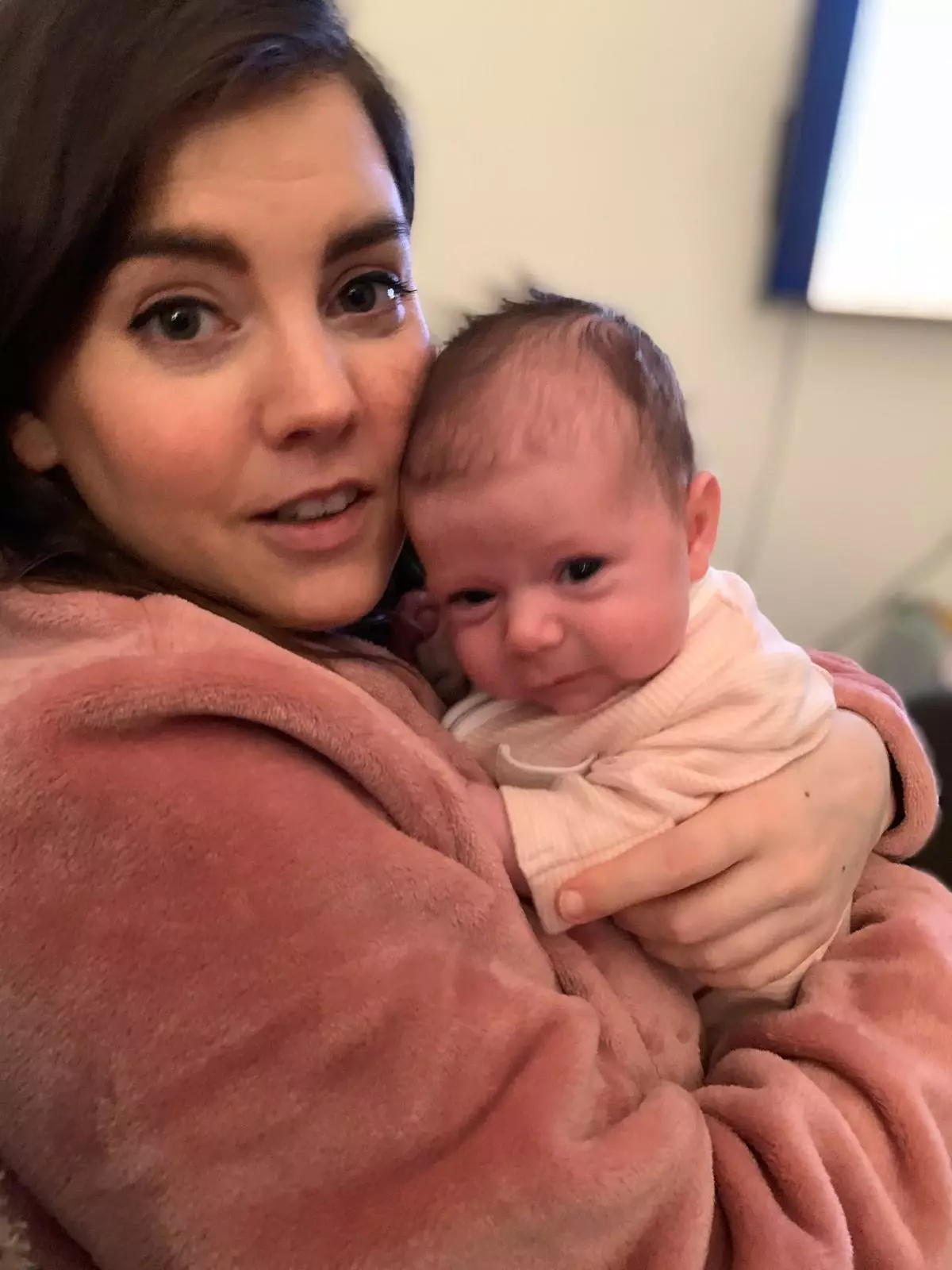
Advert
After three more episodes of twitching and three attempts to get a doctor into the room, I finally saw a paediatrician and was told that Olga was having seizures and would have to be taken to the special care baby unit for tests and observation.
I was left with my mum on the maternity ward, without a baby, while my husband went with Olga to intensive care. That all changed the next morning when I was told that, due to new Covid-19 visitor rules, my mum had to leave the hospital immediately and I would be on the ward alone without my baby.
There were plenty of tears and pleading, until finally I was told I could discharge myself and come off pain relief to be closer to my baby on the special care unit. During that time, doctors did scans under sedation and put her on phenobarbital to stop her seizures and prevent them doing more damage.
Olga slept for three days straight, which was terrifying. She was being fed via IV and on a bed that measured all her vitals and bleeped all the time. That first week felt very much like we didn't have a baby anymore.
Advert
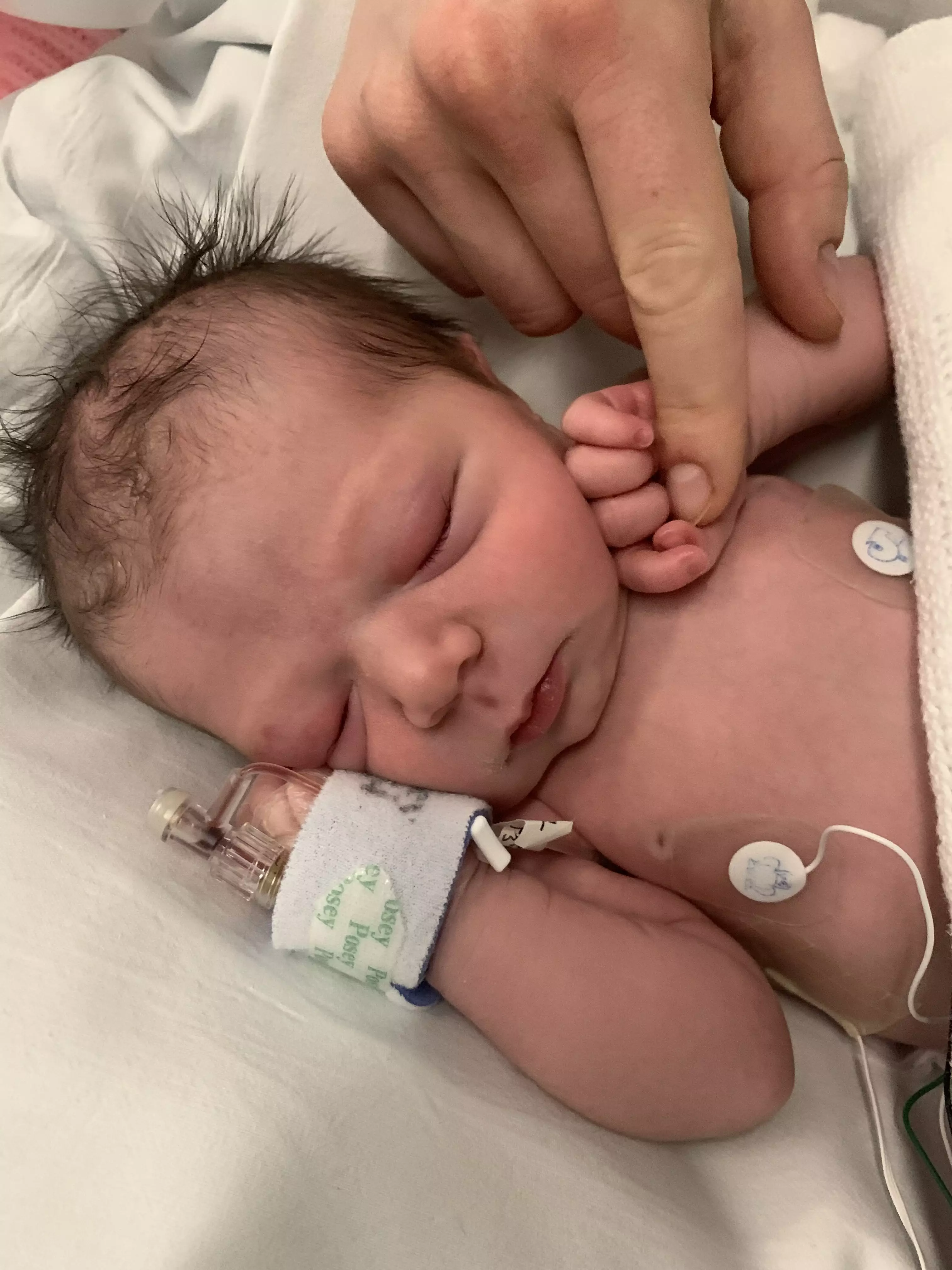
Meanwhile on the outside, social distancing was in full swing, with rumours of a potential lockdown to come in the next few days. We weren't allowed visitors, so our families couldn't meet our new arrival. I had a panic attack at the prospect of leaving hospital without support from family and friends, and society as we'd known it changing for an undefined amount of time.
Then, after eight days of tears, hopelessness and facing a series of terrifying potential diagnoses we were ultimately told Olga had suffered a brain haemorrhage during labour and we were sent home on Friday 19 March.
My mum, who lives in Yorkshire, had stayed at our Hertfordshire home during our time in hospital to bring hot meals and fresh clothes for us and the baby daily.
Advert
When we got back to the house she was there for a couple of days to answer my questions on breastfeeding and burping and helped us through the first bath. She was forced to go back up north the day before lockdown started on the 23rd March. We didn't (and still don't) know when we would see her or the rest of our family again.
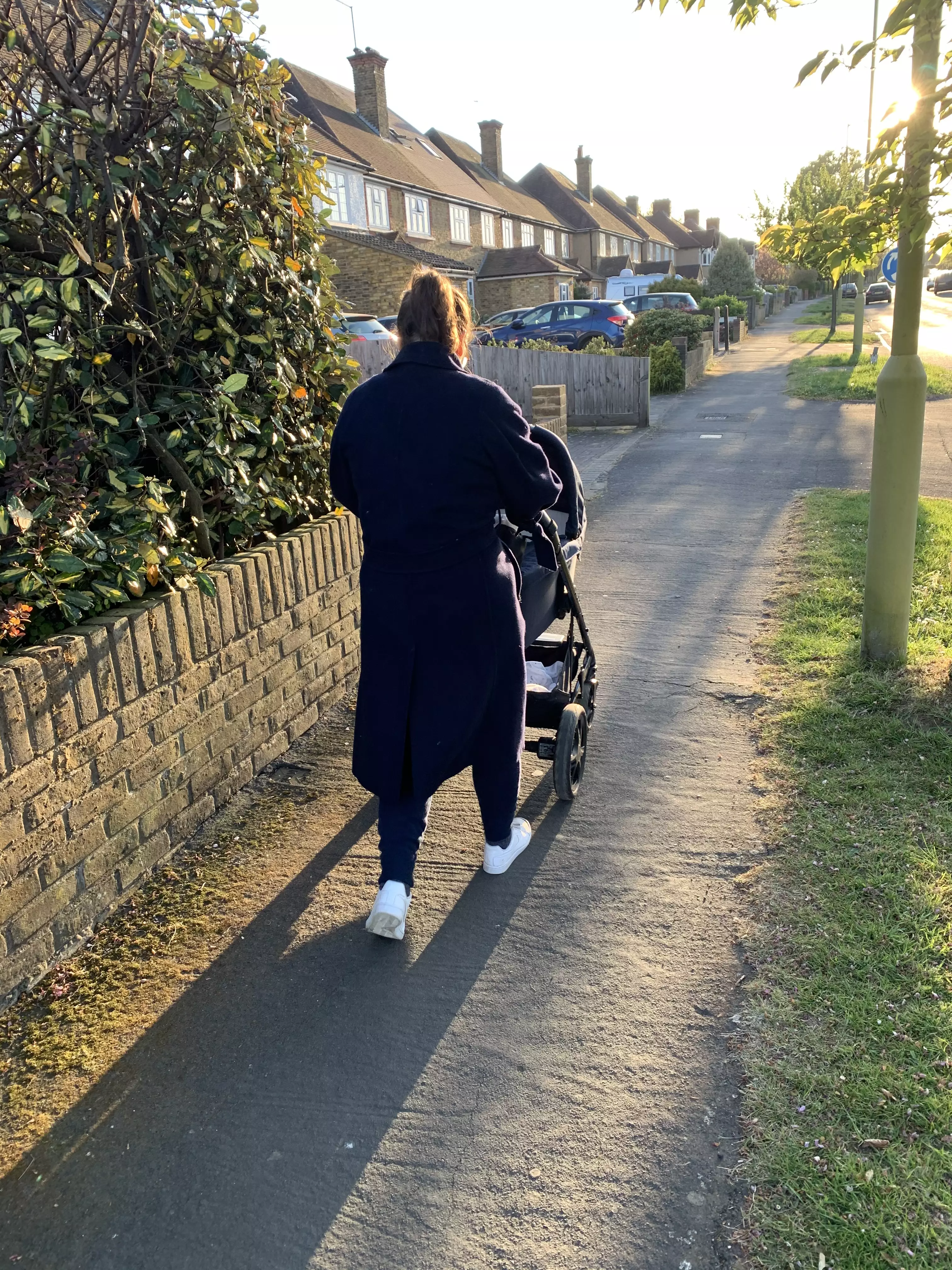
It wasn't just our contact with family and friends that had been severed. Midwife and health-visitor appointments have been strange and from an acceptable two-metre distance or cancelled all together to prevent our little family and our wonderful frontline workers falling ill.
The thought of Olga having another seizure is terrifying. Not only is there a risk of contracting Covid-19 if we had to rush her into hospital, but our local A&E closed when it ran out of oxygen, making the trip to get help three times longer.
I was convinced that every time Olga moved she was having a seizure but also had fears that other new and isolated parents are experiencing: can she choke on her milk if she gulps it too quickly? What if her nappy rash doesn't clear up and gets infected? Why is she crying?
Normally in this situation you'd seek help. You'd call your mum or mummy friend to come over for reassurance or pop to the GP and hopefully be made to feel like you'd overreacted (phew).
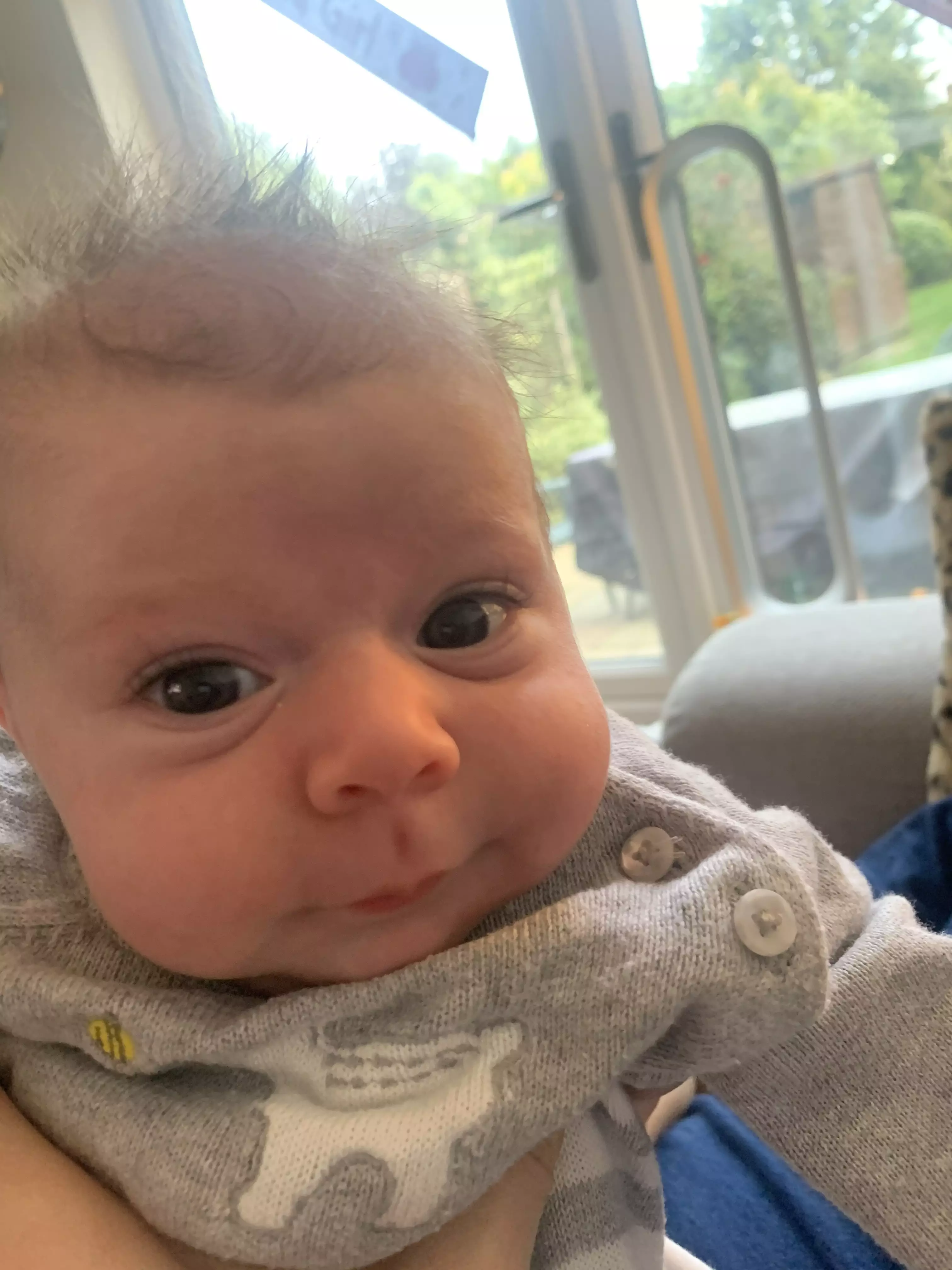
Yes, we have help at end of the phone if Olga develops nappy rash, cries a bit more than normal or something worse - but we've taken our face-to-face interactions for granted.
Be it an empathetic hand on your shoulder from a nurse, grabbing a cup of tea with a friend to tell them you're not okay or just a hug from your mum - these are the things that Covid-19 has robbed new parents of.
This isn't what I thought maternity leave would be. If it takes a village to raise a child then is my baby lacking something essential?
I've had to learn several lessons very quickly. The first being that having a husband at home after paternity leave is a blessing. His job allows him to work from home so our new family has already spent six weeks together. I've started a gratitude diary to remind myself of the things I have to be thankful for amidst the uncertainty.
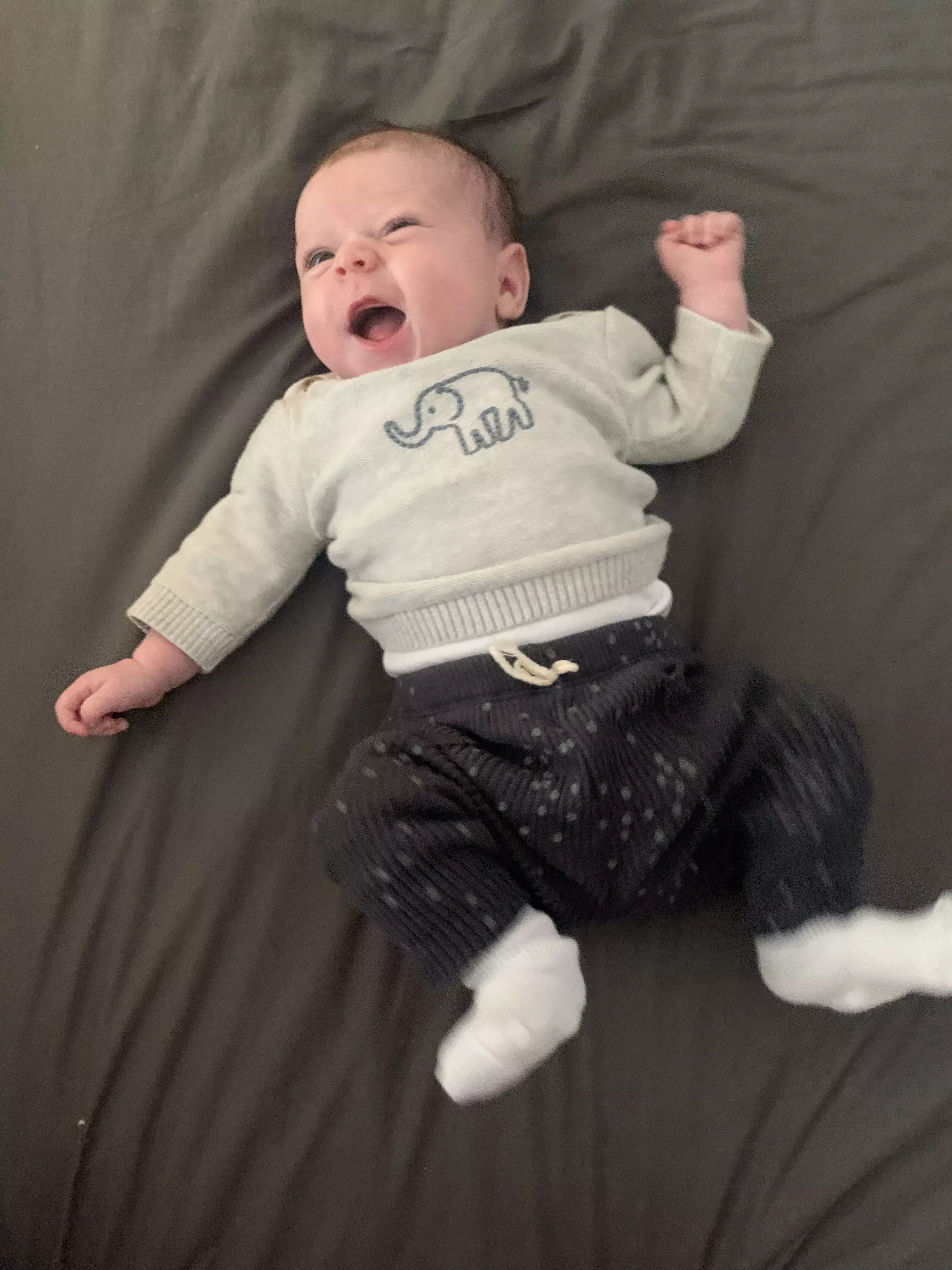
Secondly, the wonderful frontline workers of the NHS have adapted to the situation and you really do have help at the end of the phone or video call if you need it from your GP, midwife or elsewhere. Call 111 if you aren't sure what level of care you or your baby needs.
Reaching out to people is more important than ever. You can't physically be with all your loved ones, but a Houseparty reunion with friends, family pub quiz hosted on Zoom or sending a note or bunch of flowers can really make someone's day.
Looking after yourself is important too. While new parents' focus might be firmly on baby, remember that reducing your own stress can help your new arrival feel calmer. Try and put some sort of routine in place - even if that's just putting on fresh pyjamas daily (no judgement).
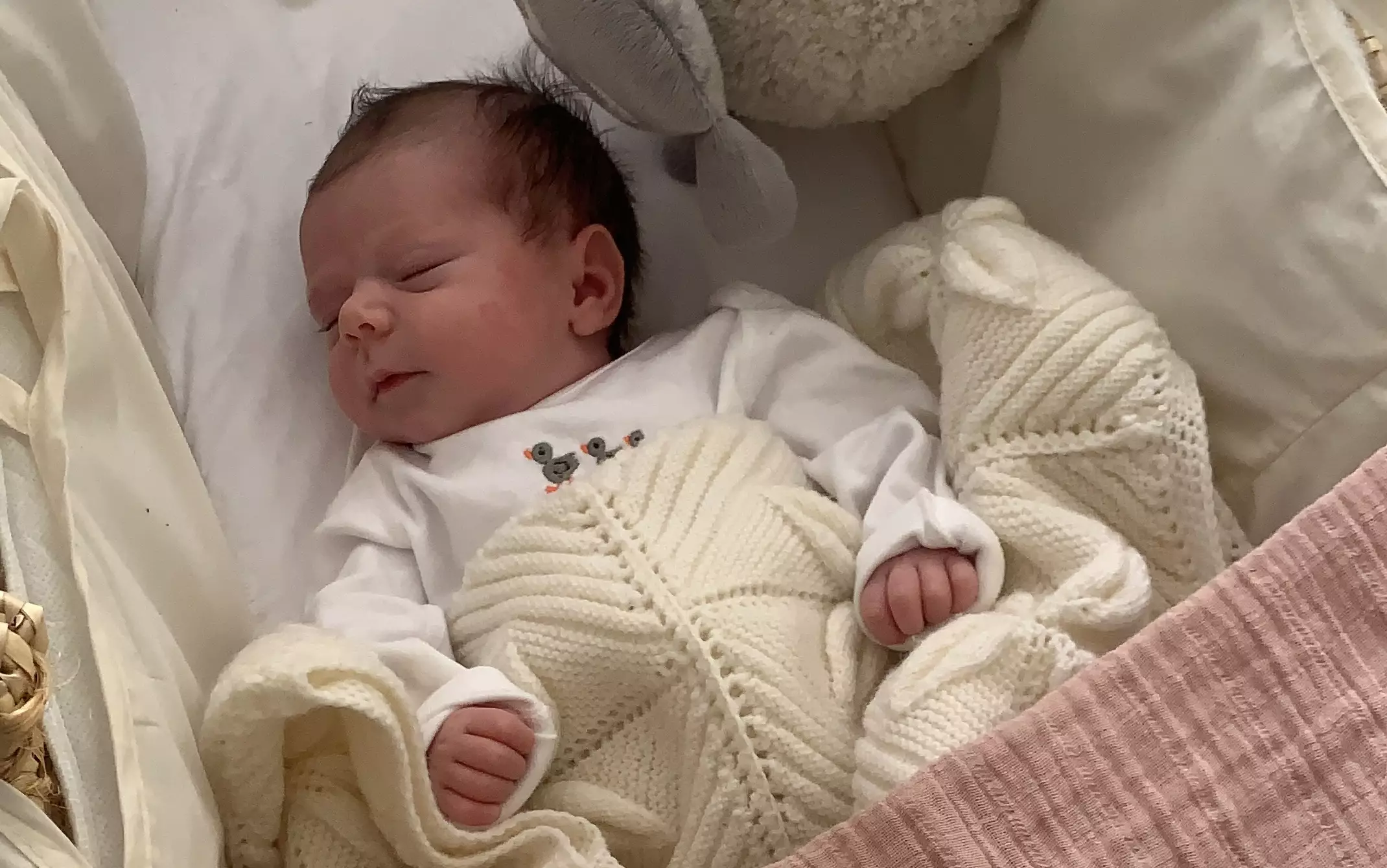
Limit your daily news consumption and avoid scaremongering content by choosing a news outlet you trust and limiting yourself to checking it once or twice per day only.
Go for a walk respecting the social-distancing rules - take sanitising hand gel and a face mask if it helps you feel safer. Walking will help your physical recovery as well as giving your mental health a little lift.
For help or support, call Samaritans samaritans.org on 116 123
Topics: Pregnancy, maternity, Life News, Coronavirus, health news